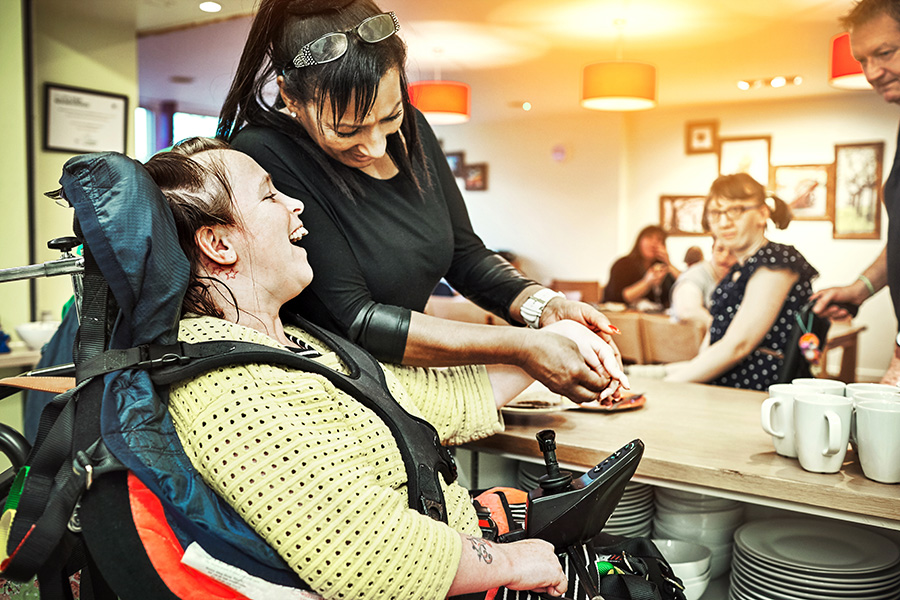 Breaking Barriers That Prevent People and Communities from Thriving
Breaking Barriers That Prevent People and Communities from Thriving
Social Work Month is a time to celebrate the life-changing profession of social work! The theme for Social Work Month 2023 is Social Work Breaks Barriers. Social workers choose this crucial healthcare profession because they have a strong desire to help empower individuals, families and communities. They positively touch the lives of millions of Americans each day in a variety of places, including schools, hospitals, the military, child welfare agencies, community centers, and in federal, state and local government.
Social workers are the largest group of mental health care providers in the United States, working daily to help thousands of Americans overcome mental illnesses such as depression and anxiety. They are on the frontlines of the nation’s opioid addiction crisis, and they help people cope with death and grief. Social workers are key members of the teams that help people and communities recover from natural disasters, and they help our nation live up to its values by advocating for equal rights for all, including people of color, people who are indigenous, people who are LBGTQ+, and people who follow various faiths. The Social Work profession is one of the fastest growing careers in the United States, with about 708,000 social workers today and more than 60,000 more social workers expected to enter the profession over the next decade.
Origin of Social Work
Social work has existed for more than a century. The profession can trace a significant part of its origin to Jane Addams and Ellen Gates Star, who in 1889 opened Hull House in Chicago to provide social services to a large immigrant population in the area. Other social work pioneers include anti-lynching advocate and women’s rights activist Ida B. Wells, and George Edmund Haynes, a social worker who was co-founder of the National Urban League.
Throughout history, social workers have been barrier-breakers. Frances Perkins, the first female Labor Secretary during the Great Depression, contributed to securing the 40-hour workweek, minimum wage, and Social Security benefits. Other social workers, such as former NASW President Whitney M. Young Jr., worked in collaboration with President Lyndon B. Johnson and other leaders during the turbulent Civil Rights era to break down the barrier of employment discrimination so that people of color could gain access to better paying jobs.
Meet Social Workers In Action
Chicago is experimenting with sending a team of mental health professionals—including social workers like Jennifer Garross—to manage the hundreds of mental health emergency calls the city receives each year. Instead of risking arrest by police, people who experience a mental health crisis are first met by social workers like Garross, who is part of the Chicago Crisis Assistance Response and Engagement (CARE) program.
“We’re able to show up to a situation where there’s a mental health crisis [and] help to de-escalate it,” Garross told CBS News. She added that social workers also provide clothing and other services to people they contact. Garross’s work is an example of how one city is using social workers to break through barriers that prevent access to compassionate mental health care.
Social workers like Caitlin Ryan at the Family Acceptance Project work to help families overcome cultural and faith hurdles that prevent them from embracing and supporting children who are LGBTQ+. Social workers like Suzin Bartley, former executive director at The Children’s Trust in Massachusetts, strengthen families by helping them break through economic, psychological, and other barriers to provide better care for their children. And social workers like Kristina M. Whiton-O’Brien, director of partnerships at Vot-ER, help remove obstacles that keep individuals from exercising their right to vote.
Social workers engage with people of all backgrounds, ages and needs. Geriatric social workers are advocates for the older adults, ensuring they receive the mental, emotional, social and familial support they need, while also connecting them to resources in the community that may provide additional support. Pediatric social workers work in inpatient and outpatient medical settings to support children who are experiencing chronic and/or severe medical conditions, providing families and children with emotional support, care coordination, connections to important resources, and help navigating the medical system.
Disability social workers help people with physical and mental disabilities cope with the challenges in their daily lives. They help individuals understand their diagnoses, gain access to buildings, find and secure safe and stable housing, find employment, gain access to aids of daily living, and support them in making lifestyle adjustments to accomodate their disability.
This Social Work Month, join Shield HealthCare as we celebrate and bring awareness to the essential, life-changing work of America’s social workers. Learn more at Socialworkers.org.





















